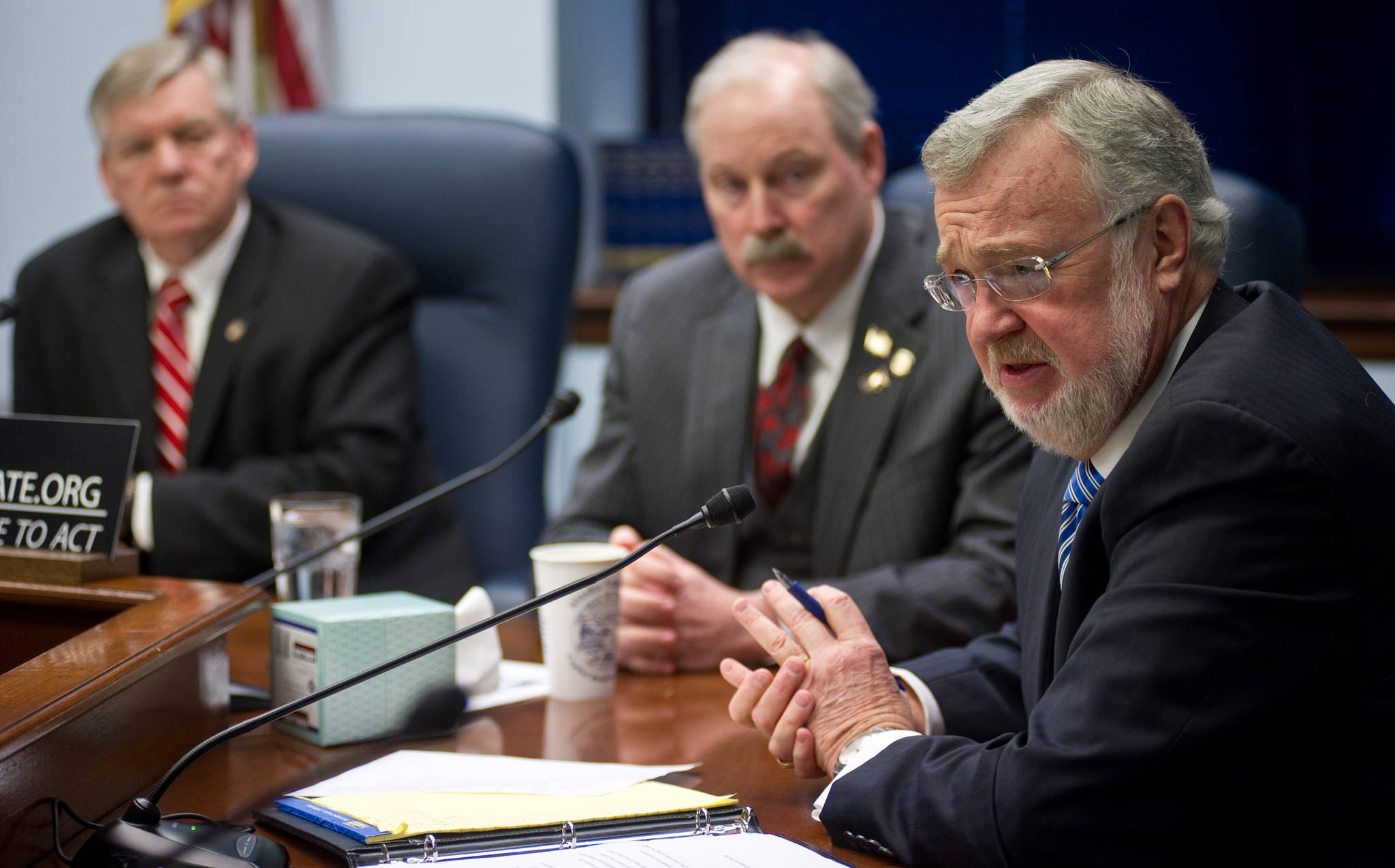A two-time Alaska Senate President with 19 years of experience in the Alaska Legislature has become the first person to seek the lieutenant governor’s office in 2018.
Sen. Gary Stevens, R-Kodiak, filed his paperwork with the Division of Elections on Friday.
“I’ve been interested in doing this for some time, and now it’s the time to do it,” Stevens said by phone on Monday.
While the lieutenant governor is normally an afterthought on the statewide ballot, it’s worth noting that Alaska’s lieutenant governor oversees elections. That’s become increasingly important given President Donald Trump’s recent vow to ferret election fraud and the belief among others that his move is designed to disenfranchise minority voters.
At the same time, the state of Alaska is considering ways to modernize its voting system. Current Lt. Gov. Byron Mallott has created a working group on the topic, and Stevens is a member.
“Our (voting) equipment is getting old and needs to be replaced,” Stevens said. “In the next year or two, we need to replace those systems.”
One option is voting by mail, something already used in Oregon and by the Municipality of Anchorage.
“I’m not sure that’s the answer entirely, but I think it should be something we should be looking at,” Stevens said.
The process of picking a lieutenant governor is different from the way a president picks a vice president. According to the Alaska Constitution, lieutenant governor candidates vie with each other in party primaries. Whoever wins the party primary gets matched with whoever wins the party primary for governor. They then campaign as a team in the general election.
Stevens doesn’t know who his partner would be, but he says he brings the same thing regardless: Knowledge of how the Legislature works and connections to help legislation flow smoothly.
“It’s really crucial that the governor and lieutenant governor work well with the Legislature,” Stevens said. “I don’t think I have any enemies in the Legislature, and lots of friends.”
Stevens was Senate President when that body operated under a bipartisan coalition that included Republicans and Democrats alike. That coalition collapsed after the 2012 election.
He believes that whoever is elected to office in 2018 will still face the task of balancing the state’s multibillion-dollar deficit. As a senator (and previously, in the House), Stevens has supported using a portion of the earnings of the Alaska Permanent Fund to pay for state operations. He said by phone that he believes the Legislature will not make a decision on that issue before the election, even though the House and Senate have each passed versions of such a plan.
“If it’s not an issue for the next governor, that would be great, but it very well might be,” Stevens said.
Stevens announced his bid for lieutenant governor just over one year before the statewide primary. In the coming months, he expects others to jump into the race for lieutenant governor and governor alike.
“It’s good to get your name out soon,” he said, and “before the end of the year, you want to make sure that you’ve filed in order to build that campaign fund.”
Under state rules, campaign contributions are limited by calendar year. Anyone who files for office in 2017 can accept contributions in 2017 and 2018, effectively doubling the maximum.
While the last gubernatorial election involved some unusual moves that resulted in the creation of a “unity ticket,” Stevens said he doesn’t foresee that happening with him.
“My intention is to run with the Republican nominee,” he said.
Contact reporter James Brooks at james.k.brooks@juneauempire.com or call 523-2258.

